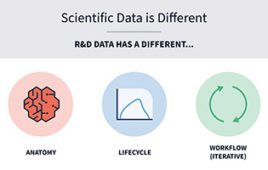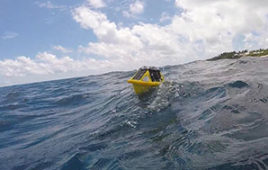 The Norwegian Academy of Science and Letters has decided to award the Abel Prize for 2016 to Sir Andrew J. Wiles (62), University of Oxford, “for his stunning proof of Fermat’s Last Theorem by way of the modularity conjecture for semistable elliptic curves, opening a new era in number theory.”
The Norwegian Academy of Science and Letters has decided to award the Abel Prize for 2016 to Sir Andrew J. Wiles (62), University of Oxford, “for his stunning proof of Fermat’s Last Theorem by way of the modularity conjecture for semistable elliptic curves, opening a new era in number theory.”
The President of the Norwegian Academy of Science and Letters, Ole M. Sejersted, announced the winner of the 2016 Abel Prize at the Academy in Oslo on March 15. Andrew J. Wiles will receive the Abel Prize from H.R.H. Crown Prince Haakon at an award ceremony in Oslo on May 24.
The Abel Prize recognizes contributions of extraordinary depth and influence to the mathematical sciences and has been awarded annually since 2003. It carries a cash award of NOK 6,000,000 (about EUR 600,000 or USD 700,000).
Andrew J. Wiles is one of very few mathematicians — if not the only one — whose proof of a theorem has made international headline news. In 1994 he cracked Fermat’s Last Theorem, which at the time was the most famous, and long-running, unsolved problem in the subject’s history.
Wiles’ proof was not only the high point of his career — and an epochal moment for mathematics — but also the culmination of a remarkable personal journey that began three decades earlier. In 1963, when he was a 10-year-old boy growing up in Cambridge, England, Wiles found a copy of a book on Fermat’s Last Theorem in his local library. Wiles recalls that he was intrigued by the problem that he as a young boy could understand, and yet it had remained unsolved for three hundred years. “I knew from that moment that I would never let it go,” he said. “I had to solve it.”
The Abel Committee says: “Few results have as rich a mathematical history and as dramatic a proof as Fermat’s Last Theorem.”
A life in mathematics
Andrew J. Wiles, born on April 11, 1953 in Cambridge, earned his bachelor’s degree in mathematics in 1974 at Merton College, Oxford, and a Ph.D. in 1980 at Clare College, Cambridge. After a period at the Institute for Advanced Study in New Jersey in 1981, Wiles became a professor at Princeton University. In 1985-86, Wiles was a Guggenheim Fellow at the Institut des Hautes Études Scientifiques near Paris and at the École Normale Supérieure. From 1988 to 1990, Wiles was a Royal Society Research Professor at the University of Oxford, before returning to Princeton. He rejoined Oxford in 2011 as Royal Society Research Professor.
Awards and honors
Andrew J. Wiles has been awarded a number of major prizes in mathematics and science. They include the Rolf Schock Prize, the Ostrowski Prize, the Wolf Prize, the Royal Medal of the Royal Society, the U.S. National Academy of Science’s Award in Mathematics, and the Shaw Prize. The International Mathematical Union presented him with a silver plaque, the only time they have ever done so. He was awarded the inaugural Clay Research Award. In 2000, he was given a knighthood.
Andrew J. Wiles is a Fellow of the Royal Society. He is a foreign member of the US National Academy of Sciences and of the French Academy of Sciences.
He has honorary degrees from Oxford, Cambridge, Columbia, Yale, Warwick and Nottingham.
The Abel Prize
The Abel Prize is awarded by the Norwegian Academy of Science and Letters. The choice of the Abel Laureate is based on the recommendation of the Abel Committee, which is composed of five internationally recognized mathematicians. The members of the current committee are: John Rognes (chair), Rahul Pandharipande, Éva Tardos, Luigi Ambrosio and Marta Sanz-Solé.




